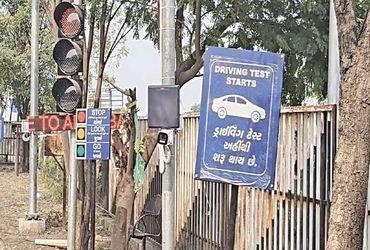Blood Donation Guide: Health Benefits, Eligibility, and Requirements
Learn about blood donation benefits, age and weight requirements, limitations, and repeat donation considerations. Save lives with SuratTimes.com's comprehensive guide.

Join our WhatsApp Community to receive travel deals, free stays, and special offers!
- Join Now -
Join our WhatsApp Community to receive travel deals, free stays, and special offers!
- Join Now -
The Lifesaving Act of Blood Donation: Benefits, Requirements, and Considerations
Blood donation is a noble act that saves millions of lives worldwide each year. It is a simple, safe, and rewarding process that not only helps those in need but also offers health benefits to donors. This comprehensive guide explores the health benefits of blood donation, eligibility criteria, limitations, repeat donation considerations, and other essential details to inform and encourage potential donors.
Health Benefits of Blood Donation
Donating blood is not only a selfless act but also provides several health advantages for the donor. Here are some key benefits:
-
Cardiovascular Health Improvement
Regular blood donation may reduce the risk of heart disease by lowering blood viscosity and iron levels. Excess iron in the blood can contribute to oxidative stress, which may damage blood vessels. By donating blood, you help maintain healthy iron levels, potentially reducing the risk of heart attacks and strokes. -
Free Health Checkup
Before donating, every donor undergoes a mini-physical examination, including checks for blood pressure, pulse, temperature, and hemoglobin levels. This screening can help identify underlying health issues early, allowing donors to seek timely medical attention. -
Burns Calories
Donating one pint of blood (approximately 450 ml) burns around 650 calories. While not a substitute for exercise, this can be a small perk for those maintaining a healthy lifestyle. -
Reduces Iron Overload
Conditions like hemochromatosis, where the body absorbs too much iron, can be managed through regular blood donation. This helps prevent damage to organs like the liver and heart caused by iron accumulation. -
Psychological Benefits
Donating blood boosts mental well-being by fostering a sense of purpose and community connection. Knowing that your donation can save up to three lives provides immense satisfaction and reduces stress. -
Stimulates Blood Cell Production
After donating, the body works to replenish lost blood, stimulating the production of new red blood cells. This process keeps the circulatory system healthy and efficient.
Eligibility Criteria for Blood Donation
To ensure the safety of both the donor and the recipient, strict eligibility criteria are in place. Below are the key requirements for blood donation in India, based on guidelines from the National Blood Transfusion Council (NBTC) and World Health Organization (WHO).
Age Requirements
- Minimum Age: 18 years
- Maximum Age: 65 years
- First-time donors above 60 years may require additional medical clearance.
- Regular donors may continue up to 65, provided they meet health criteria.
Weight Requirements
- Minimum Weight: 45 kg (for donating 350 ml of blood)
- Minimum Weight: 50 kg (for donating 450 ml of blood)
- Donors with lower body weight may be eligible for smaller volume donations, depending on blood bank protocols.
Hemoglobin Levels
- Minimum Hemoglobin:
- Men: 12.5 g/dL
- Women: 12.0 g/dL
- A finger-prick test is conducted before donation to ensure hemoglobin levels are adequate. Low hemoglobin may indicate anemia, disqualifying the donor temporarily.
General Health
- Donors must be in good health, free from acute or chronic illnesses.
- No fever, cold, or infections in the past two weeks.
- Blood pressure should be within normal limits (typically 100/60 to 180/100 mmHg).
- Pulse rate should be regular, between 60–100 beats per minute.
Other Requirements
- Donors must have slept adequately (at least 6 hours) the night before donation.
- A balanced meal should be consumed 2–3 hours prior to donation, avoiding fatty foods.
- Adequate hydration is essential before and after donating.
Limitations and Disqualifications
Certain conditions or behaviors may temporarily or permanently disqualify individuals from donating blood to protect both the donor and recipient. Below are common limitations:
Temporary Deferrals
- Recent Illness:
- Cold or flu: Deferral for 2 weeks after full recovery.
- Dengue or malaria: Deferral for 6 months after recovery.
- Typhoid: Deferral for 12 months after recovery.
- Medications:
- Antibiotics: Deferral for 2 weeks after completing the course.
- Certain medications (e.g., isotretinoin for acne): Deferral for 1 month after stopping.
- Consult the blood bank for a full list of restricted medications.
- Vaccinations:
- Hepatitis B, tetanus, or rabies vaccine: Deferral for 2 weeks.
- COVID-19 vaccine: Deferral for 14–28 days (varies by vaccine type and local guidelines).
- Pregnancy and Breastfeeding:
- Deferral for 6 months after childbirth or miscarriage.
- Breastfeeding mothers are deferred until 6 months after weaning.
- Menstruation: Women can donate during menstruation if they feel well and meet hemoglobin requirements.
- Alcohol Consumption: Deferral for 24 hours after consuming alcohol.
- Tattoos or Piercings: Deferral for 6–12 months (varies by blood bank) due to infection risk.
- Recent Blood Donation:
- Whole blood: Deferral for 3 months (men) or 4 months (women).
- Platelet donation: Deferral for 48 hours to 7 days, depending on the procedure.
Permanent Deferrals
- Chronic Diseases:
- Heart disease, kidney disease, liver disease, or cancer.
- Diabetes requiring insulin injections.
- Hypertension uncontrolled by medication.
- Infectious Diseases:
- HIV/AIDS, hepatitis B, or hepatitis C.
- History of tuberculosis or leprosy.
- High-Risk Behaviors:
- Intravenous drug use.
- Multiple sexual partners or history of paid sex work.
- Blood Disorders:
- Hemophilia, thalassemia, or sickle cell disease.
- Organ Transplants: Recipients of organ or tissue transplants are permanently deferred.
Repeat Donations: Frequency and Health Considerations
Regular blood donation is encouraged, but there are strict guidelines to ensure donor safety.
Donation Frequency
- Whole Blood Donation:
- Men: Every 3 months (maximum 4 times per year).
- Women: Every 4 months (maximum 3 times per year).
- Platelet or Plasma Donation:
- Every 48 hours, up to 24 times per year, with a 7-day gap after whole blood donation.
- Double Red Cell Donation (if available): Every 6 months.
Health Considerations for Repeat Donors
- Iron Deficiency: Frequent donations can deplete iron stores, especially in women. Donors should consume iron-rich foods (e.g., spinach, lentils, red meat) and consider supplements if advised by a doctor.
- Fatigue: Over-donating can cause tiredness. Adequate rest, hydration, and nutrition are crucial.
- Monitoring Hemoglobin: Regular donors should have their hemoglobin levels checked periodically to prevent anemia.
- Long-Term Safety: Studies show that donating blood within recommended intervals is safe for most healthy individuals. However, donors with low baseline hemoglobin or poor nutrition should consult a doctor.
Medications and Blood Donation
Certain medications can affect eligibility. Donors must disclose all medications during the screening process. Below are common considerations:
- Allowed Medications:
- Oral contraceptives, thyroid medications, and most antihypertensive drugs are generally safe, provided the condition is stable.
- Over-the-counter painkillers like paracetamol are allowed if taken for minor issues and not masking symptoms.
- Restricted Medications:
- Aspirin: May defer platelet donation for 48–72 hours due to its effect on platelet function.
- Anticoagulants (e.g., warfarin): Permanent deferral due to bleeding risk.
- Chemotherapy drugs: Permanent deferral due to cancer history.
- Always consult the blood bank for specific medication-related deferrals.
The Donation Process
Understanding the donation process can ease first-time donors’ concerns. Here’s what to expect:
- Registration: Provide identification and complete a health questionnaire.
- Screening: A medical professional checks vital signs and hemoglobin levels.
- Donation: The actual donation takes 5–10 minutes for whole blood (350–450 ml) or up to 2 hours for apheresis (platelets/plasma). A sterile needle is used, and the process is safe.
- Rest and Refreshment: After donation, rest for 10–15 minutes and enjoy snacks and fluids to replenish energy.
- Post-Donation Care:
- Drink plenty of water for 24–48 hours.
- Avoid heavy lifting or strenuous exercise for 12 hours.
- Remove the bandage after 4–6 hours and keep the site clean.
Potential Side Effects and How to Manage Them
Most donors experience no issues, but some may encounter mild side effects:
- Dizziness or Fainting: Caused by a temporary drop in blood pressure. Lie down, elevate feet, and drink fluids.
- Bruising at the Needle Site: Apply a cold pack and avoid heavy lifting.
- Fatigue: Rest and eat nutritious meals to recover energy.
- Rare Complications: Allergic reactions or nerve irritation are extremely rare but should be reported to the blood bank.
If side effects persist, seek medical advice promptly.
Myths and Facts About Blood Donation
- Myth: Donating blood weakens the body permanently.
Fact: Healthy donors recover fully within 24–48 hours, with blood volume restored in hours and red cells in weeks. - Myth: Blood donation is painful.
Fact: The needle prick causes minimal discomfort, and the process is generally painless. - Myth: Only certain blood types are needed.
Fact: All blood types are in demand, especially O-negative (universal donor) and AB-positive (universal plasma donor).
Why Donate Blood?
India faces a constant blood shortage, with only 1% of the population donating annually against a global average of 3%. Blood is critical for:
- Accident and trauma victims.
- Surgeries, including organ transplants.
- Cancer and anemia patients.
- Women with childbirth complications.
A single donation can save up to three lives, making it a powerful act of humanity.
How to Get Involved
- Find a Blood Bank: Contact local hospitals, Red Cross centers, or use apps like Indian Blood Donors.
- Organize a Blood Drive: Collaborate with NGOs or community groups to host donation camps.
- Spread Awareness: Share information on social media or through SuratTimes.com to inspire others.
Conclusion
Blood donation is a simple yet impactful way to save lives while reaping health benefits. By understanding the eligibility criteria, limitations, and health considerations, you can make informed decisions and contribute to a healthier society. Let’s come together to bridge India’s blood shortage and make a difference—one donation at a time.
For more information or to locate a blood bank in your city, visit Indian Red Cross Society or contact your local health authorities.
What's Your Reaction?
 Like
0
Like
0
 Dislike
0
Dislike
0
 Love
0
Love
0
 Funny
0
Funny
0
 Angry
0
Angry
0
 Sad
0
Sad
0
 Wow
0
Wow
0




















































